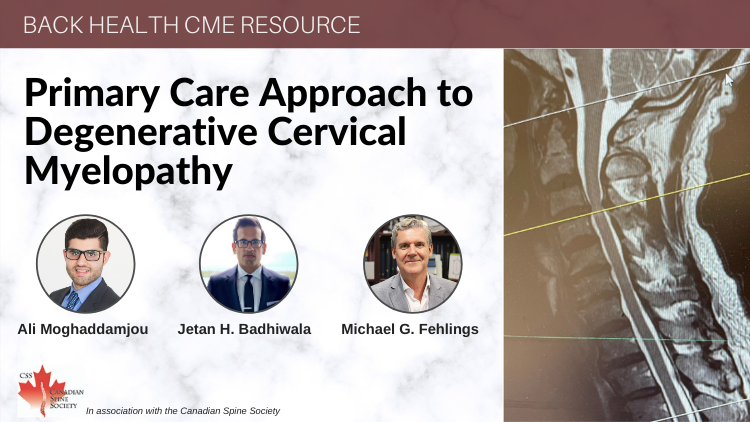1Division of Neurosurgery, Department of Surgery, University of Toronto, Spinal Program, Toronto Western Hospital, University Health Network, Toronto, Ontario, Canada. 2Division of Neurosurgery, Department of Surgery, University of Toronto, Spinal Program, Toronto Western Hospital, University Health Network, Toronto, Ontario, Canada. 3Division of Neurosurgery, Department of Surgery, University of Toronto, Spinal Program, Toronto Western Hospital, University Health Network, Toronto, Ontario, Canada.
